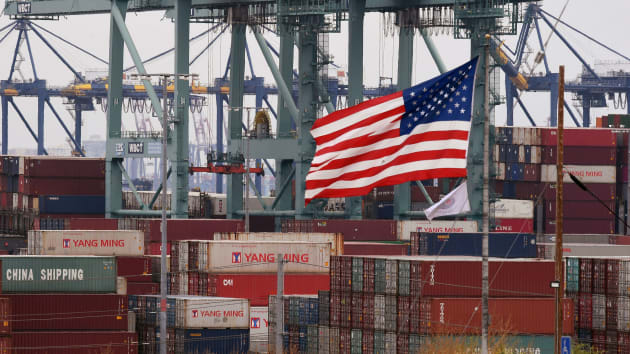Source: CNBC, September 19 2019
KEY POINTS
- “One of the things actually weighing on the U.S. economy as well as the world economy really is the uncertainty regarding these trade tensions, it’s very difficult to know what the end game is,” former U.S. Deputy Treasury Secretary Sarah Bloom Raskin told CNBC on Thursday.
- Chinese officials are due to be in Washington this week to hold consultations with the U.S. ahead of high-level trade talks in October.
- Shamik Dhar, chief economist at the Bank of New York Mellon, told CNBC that “the tariffs we’ve seen to date just aren’t big enough to explain the slowdown in global trade that we’ve seen.”
Uncertainty surrounding the U.S.-China trade war is hitting global growth, and that could be driving the slowdown more than the tariffs themselves, former U.S. Deputy Treasury Secretary Sarah Bloom Raskin told CNBC on Thursday.
Several rounds of tariffs have been levied by the two global powers on billions of dollars of each other’s goods, with the latest taking place in August.
“One of the things actually weighing on the U.S. economy as well as the world economy really is the uncertainty regarding these trade tensions, it’s very difficult to know what the end game is,” said Ruskin, who was also a U.S. Federal Reserve governor between 2010 to 2014 under the Obama administration.
Citing a study conducted by Fed economists on how that uncertainty translates into slower growth, she said one thing it found was that “it’s not necessarily the trade war, or the tariff itself that causes the slowdown — but the uncertainty around it.”
“Knowing in essence what the end game is, what the goal is, when will it be over, I think that uncertainty is something that we should try to do what we can to eliminate, because it is really making growth actually slower than it has to be,” said Raskin.
The tariffs we’ve seen to date just aren’t big enough to explain the slowdown in global trade that we’ve seen.
Shamik Dhar, CHIEF ECONOMIST, BANK OF NEW YORK MELLON
The trade dispute between U.S. and China has dragged on for more than a year now. Several rounds of negotiations between the two sides have so far failed to yield a breakthrough.
Chinese officials are due to be in Washington this week to hold consultations with the U.S. ahead of high-level trade talks in October. Ahead of that, there had been concessions from both sides, with Beijing exempting some American products from additional tariffs, while the Trump administration also agreed to delay tariff hikes.
Raskin’s comments were echoed by Shamik Dhar, chief economist at the Bank of New York Mellon.
“The tariffs we’ve seen to date just aren’t big enough to explain the slowdown in global trade that we’ve seen,” he told CNBC at the Milken Institute Asia Summit in Singapore on Thursday.
U.S. manufacturing growth increased more than expected in August, according to the Fed, although other surveys found that growth dropped to multi-year lows in August and exacerbated fears that the trade war is taking a big bite out of this key sector.
Companies and investors “fear something a lot worse” is coming and are cutting backing back on their investments now, Dhar added. “It’s hugely powerful, and it shows you how important expectations of the future are.”

